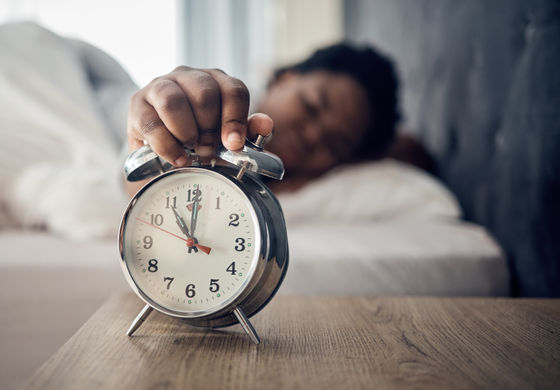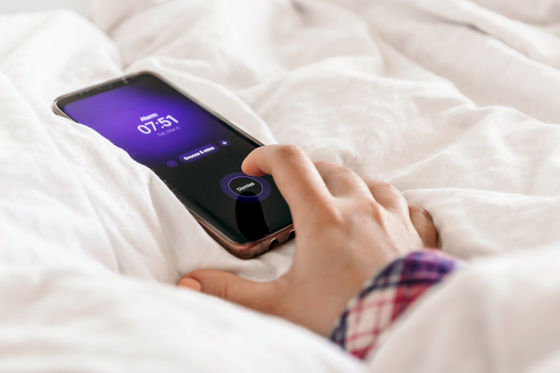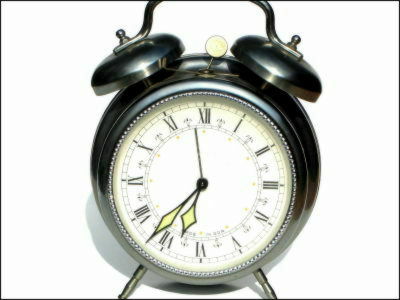The ``snooze'' function of your alarm clock could boost your brain's cognitive ability

Many people who don't like mornings can't do without the snooze function on their smartphone apps or alarm clocks. The snooze function may not seem to have anything to do with waking up refreshed, but research has shown that it may actually improve your cognitive abilities right after you wake up.
Is snoozing losing? Why intermittent morning alarms are used and how they affect sleep, cognition, cortisol, and mood - Sundelin - Journal of Sleep Research - Wiley Online Library
You don't lose if you snooze | EurekAlert!
https://www.eurekalert.org/news-releases/1004066
Is hitting the snooze button really a bad idea? Study sheds light on the impact of morning alarms on sleep and cognition
https://www.news-medical.net/news/20231023/Is-hitting-the-snooze-button-really-a-bad-idea-Study-sheds-light-on-the-impact-of-morning- alarms-on-sleep-and-cognition.aspx
Using the snooze function means your alarm will go off a little before your desired wake-up time, which may cut into your sleep time. Research has also shown that intermittent alarms that interrupt your sleep have the same effect as sleep deprivation. However, since these studies have focused on the entire night's sleep, there have been no studies to date that have focused on what happens when the snooze function is used.
Tina Sandelin, a psychologist at Stockholm University in Sweden, set out to investigate the snooze function, whose effects are not well understood, despite research showing that half of working people press the snooze button at least once every morning. They conducted an experiment in which people who woke up using the snooze function were asked to complete a cognitive test.

First, in the first survey to find out what kind of people use the snooze function, 1,195 people, or 69% of the 1,732 survey respondents, said they used the snooze function sometimes or more often, or that they set multiple alarms. I answered that I was setting it up. On the other hand, 287 people said they use one-time alarms but never use the snooze function.
The analysis found that people who use snooze are on average six years younger and four times more likely to be night owls than those who don't. In addition, those who used the snooze function slept an average of 13 minutes less on weekdays than those who did not, but they slept the same amount on holidays. Although there was no difference in sleep quality between the two groups, those who used the snooze function were three times more likely to feel sleepy during the day.
In the second experiment, 31 people who habitually use the snooze function were asked to wake up in an experimental lab for two nights with and without the snooze function.
The basic sleep duration was the same in the two sleep conditions, but in the 'with snooze' mode, the first alarm sounded 30 minutes before the usual wake-up time, and three snooze sounds were triggered at 9-10 minute intervals. As a result, the sleep time was about 6 minutes shorter than if you slept until just before waking up without using the snooze function. On the other hand, with 'no snooze function', the alarm would sound exactly at the wake-up time, and the child would wake up at that time.

When they took math and memory tests after waking up, they found that using the snooze function to wake up resulted in higher scores right after waking up. On the other hand, it was confirmed that if you suddenly wake up without the snooze function, there is an ``inertia effect'' that takes time to show your full potential after waking up. In addition, self-reported mood and sleepiness, as well as levels of the stress hormone cortisol measured by saliva tests, were the same regardless of whether the snooze function was used or not.
Sandelin said, ``In our study, 30 minutes of snoozing had no effect on sleep or difficulty in waking up, and in fact, it made your mind feel a little faster right after waking up. It is important to note that this is only for people who use the app and are able to go back to sleep immediately every time they hit the snooze button.
◆Forum now open
A forum related to this article has been set up on the GIGAZINE official Discord server . Anyone can write freely, so please feel free to comment! If you do not have a Discord account, please create one by referring to the article explaining how to create an account!
• Discord | 'Tell me what alarm clock or alarm app you use!' | GIGAZINE
https://discord.com/channels/1037961069903216680/1178623504925605898
Related Posts:
in Science, Posted by log1l_ks







